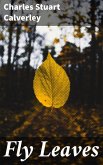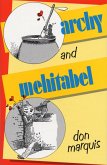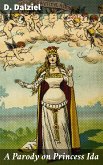Hints to Servants is a compelling anthology that weaves together diverse literary styles and voices from different epochs to explore the intricate socio-economic dynamics and satirical observations surrounding the theme of servitude. Through this collection, readers encounter a captivating range of prose that challenges societal norms with humor and biting wit. The anthology'Äôs richness is further amplified by standout pieces that use contrasting tones, from pointed satire to subtle irony, ensuring that each work adds a unique texture to the overarching narrative of power, subservience, and rebellion. The authors included in this collection, notably Jonathan Swift and John Jones, bring a wealth of literary prowess and historical context, making this anthology a profound reflection of their times. Swift, renowned for his sharp satirical edge, and Jones, bringing a distinct modernist interpretation, together elevate the discourse on servitude. The collection fluidly aligns with both the Augustan age'Äôs penchant for satire and modern insights, making it a bridge between historical and contemporary literary movements. It is a testament to the power of literature to transcend time, offering insights into societal structures and the human condition. This anthology is a must-read for those eager to explore a tapestry of narrative voices. It offers an unparalleled opportunity to delve into the complexities of servitude through a confluence of perspectives and styles. Engaging with this collection invites readers to broaden their understanding of historical and cultural nuances that continue to resonate today. In doing so, it fosters a dialogue that is as educational as it is enlightening, making Hints to Servants a significant addition to any literary enthusiast's collection.
Dieser Download kann aus rechtlichen Gründen nur mit Rechnungsadresse in A, B, BG, CY, CZ, D, DK, EW, E, FIN, F, GR, H, IRL, I, LT, L, LR, M, NL, PL, P, R, S, SLO, SK ausgeliefert werden.









